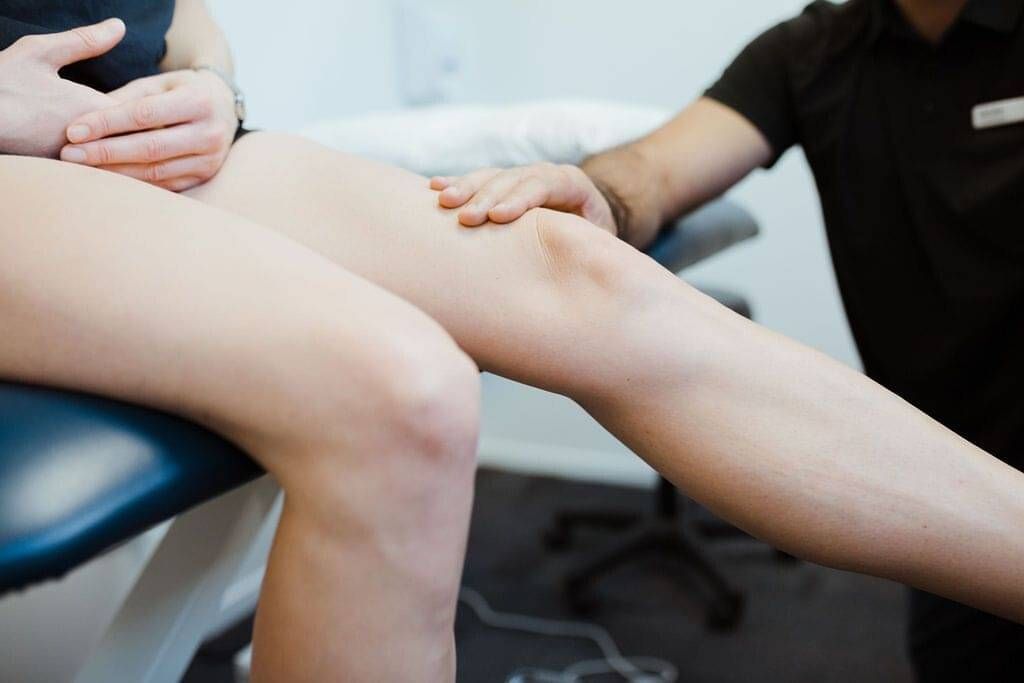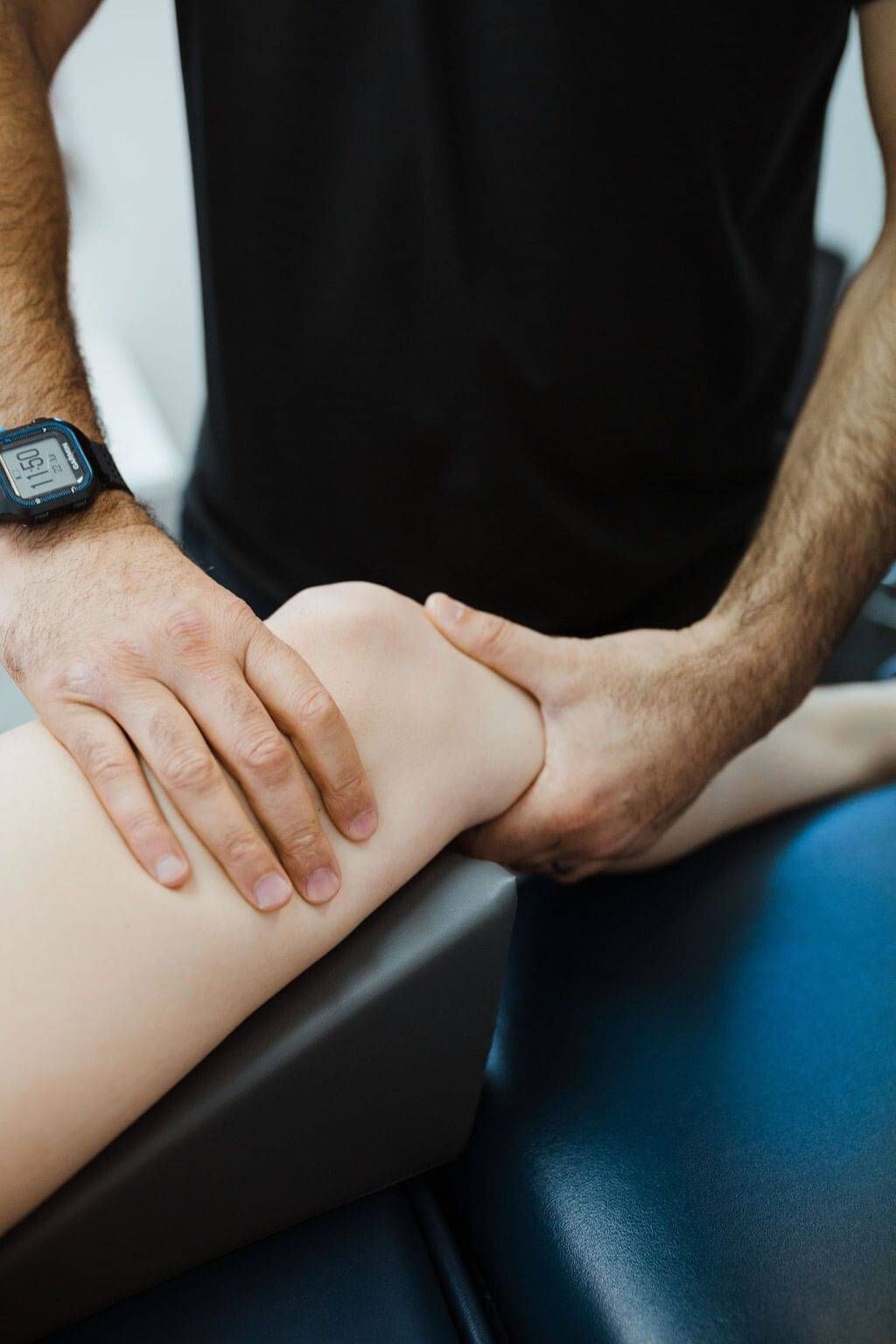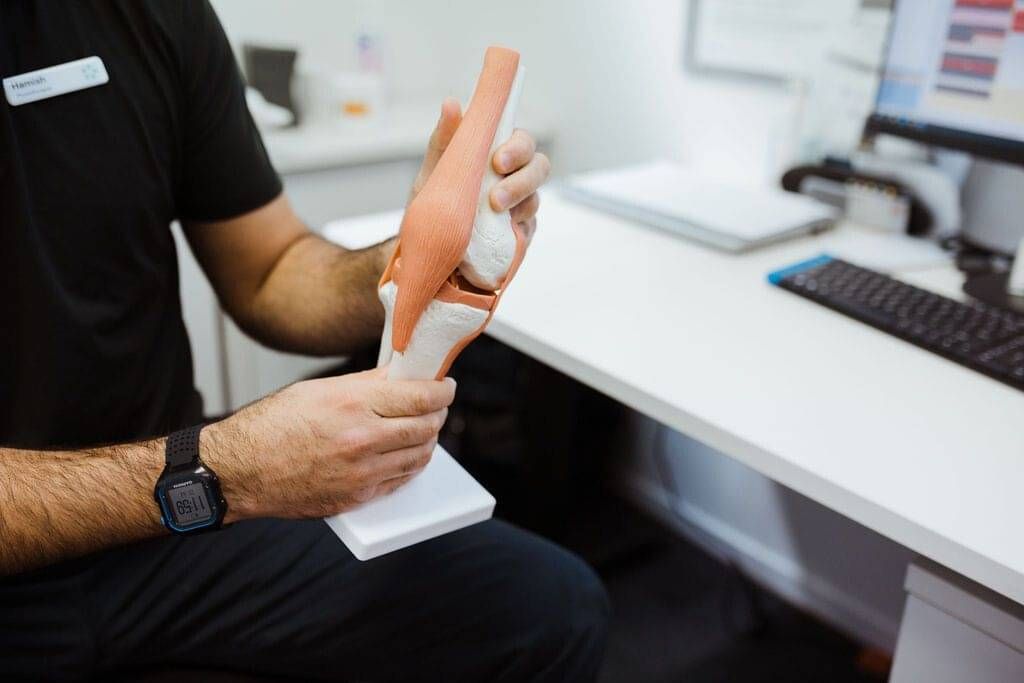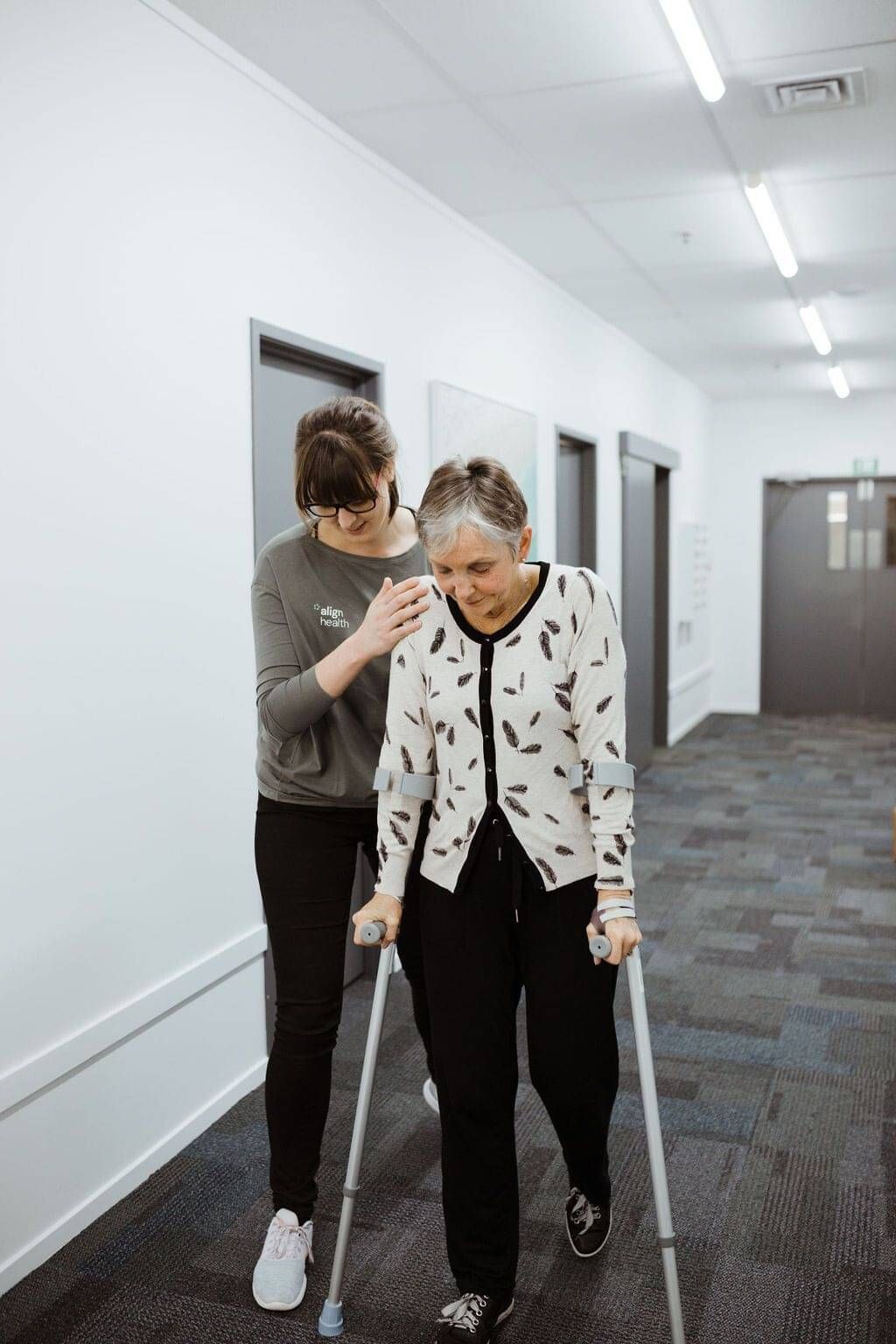Knee Surgery Recovery
Acute post-operative management
Apply this guide for the first 7-10 days following knee surgery (ACL reconstruction, knee replacement, meniscus removal/repair, etc)
During your stay in hospital, it is IMPORTANT to complete the below to maximize recovery.
This is also necessary to reduce your risk of post-operative complications such as deep vein thrombosis (DVT) and chest infections.

Maintain circulation
Tense leg muscles, wiggle toes and ankles often to maintain circulation while on bed rest.
Minimise swelling
Apply tubi grip once initial bandages are removed and maintain your leg in an inclined manner while resting.
Avoid chest infections
In sitting-up positions regularly breathe deep in through your nose and out through your mouth x10 every few hours. Followed by two huffs (fog up the window) and a cough if possible. Frequently change positions in bed and get up and move around if possible.

Exercises
The first few days and weeks are key to maximise your knee surgery outcomes. Each specific knee surgery has its own precautions that your physio will take you through. The below are basic and safe exercises to help maximise your outcome. It is important to allow for pain and exercise your knee while expecting discomfort.
Restore range of motion
Heel slides
Slide your foot back towards you as comfort allows and back out again
Perform x10 every few hours
Knee extensions
Roll up a towel or place a pillow under your heel to elevate your leg off the bed.
Allow your knee to relax downwards
Perform for 10 minutes every few hours
Begin muscle activation
Quadricep activations
Push your knee flat into the bed and hold.
Perform 5x5 second holds every few hours
Foot lifts
Roll up a towel or place a pillow under your knee. Tense your thigh and try to lift your foot up off the bed.
Perform 5x5 second holds every few hours


Restore normal walking
Your physiotherapist will fit you for crutches and supervise you with your first few steps. It is important to maintain as much weight as you can tolerate through your operated leg as soon as possible with support.
Begin using 2 crutches (3 point support)
Operated leg and both crutches down at the same time
Step through with un-operated leg
Progress to 1 crutch (2 point support) as tolerated
Operated leg and opposite crutch down at the same time
Step though with un-operated leg
To navigate up and down stairs think GAS and SAG
Going up (GAS) – good leg, affected leg, sticks
Going down (SAG) – sticks, affected leg, good leg